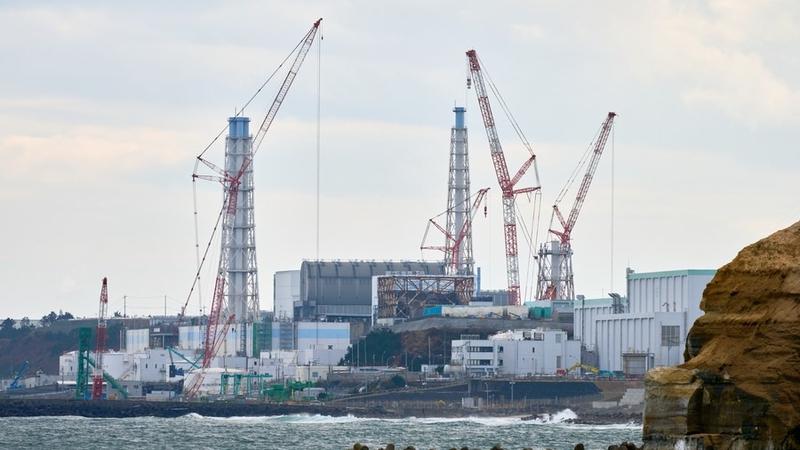 This photo taken on March 6, 2023 shows the Fukushima Daiichi nuclear power plant in Futabacho, Futabagun of Fukushima prefecture, Japan. (PHOTO / XINHUA)
This photo taken on March 6, 2023 shows the Fukushima Daiichi nuclear power plant in Futabacho, Futabagun of Fukushima prefecture, Japan. (PHOTO / XINHUA)
China turned down Japan's proposal of joining the International Atomic Energy Agency team to monitor the seawater off the coast of Fukushima for radiation and study real-time data, Japanese news agency Kyodo reported on Tuesday. However, as the Chinese embassy in Japan said on Thursday, the report, based on anonymous sources and aimed at blaming China for noncooperation on the issue, is fake.
The fact is that Japan has commissioned the IAEA Secretariat to conduct an analysis and "laboratory comparison" of the nuclear-contaminated water samples it collected itself from the destroyed Fukushima Daiichi nuclear power plant, and China was not invited to take part in that process at all.
As the Chinese embassy in Japan said in a statement, so far, the data on the radioactive water have been collected, tested and released by Japan itself. Since Japan has been acting as both player and referee, the data it obtained, in the belief it can present them to the world as IAEA data, cannot be accepted as authentic.
Laboratory comparison studies based on samples provided by Japan cannot prove the authenticity and reliability of Japanese test results. A long-term independent international monitoring group comprising representatives of all stakeholders was never been formed due to Tokyo's political manipulations. Tokyo should first display sincerity in addressing the legitimate concerns of its neighbors, instead of imposing its own monitoring data on others.
Also, in line with its agenda, as well as to convince others of its honesty, Tokyo claims the concentration of tritium in the radioactive water is below the safety level as if tritium is the only radionuclide in the wastewater. The toxic water in Fukushima contains a complex range of radioactive elements. Even after being treated through the Advanced Liquid Processing System, the wastewater contains nuclides such as carbon-14, cobalt-60, strontium-90, iodine-129 and cesium-137.
Earlier, Japan used the IAEA report to falsely claim the nuclear watchdog had approved its plan to dump the radioactive water into the sea. What Japan didn't say, and deliberately so, is that the IAEA never said the radioactive water in the Fukushima facility was safe enough to be released into the sea. And yet the IAEA has maintained a studied silence on Tokyo using its report as a shield to fend off any criticism. In other words, while the world expects the IAEA to fulfill its duty to ensure Japan disposes of the radioactive water in a way that causes the least harm to the marine ecosystem, the nuclear watchdog appears to be dancing to Tokyo's tune.
Ostensibly, with the support of Washington, the Fumio Kishida government has gone a step further to leverage its nefarious move to advance its value diplomacy, as it has started accusing anyone criticizing its action of "stoking anti-Japan sentiments". Tokyo feels no qualms about politicizing scientific issues, but is allergic to even sane advice from other countries.
As Premier Li Qiang told Kishida on the sidelines of the summits on East Asia cooperation in Jakarta on Thursday, the way Japan disposes of the radioactive water will have an impact on the marine ecosystem, people's health and future generations. Hence, Japan should sincerely honor its international obligations, consult with its neighboring countries and other stakeholders, and dispose of the nuclear-contaminated water in a responsible way.


